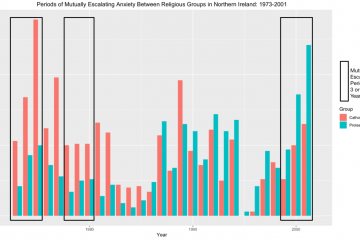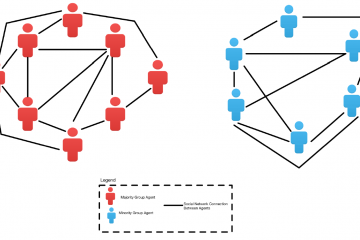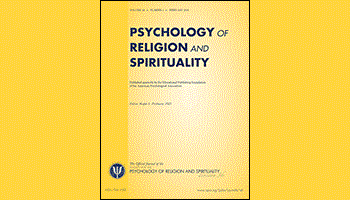Social change and global mobility lead to restlessness and upheaval. Recent trends in migration and the ongoing flow of refugees from war-torn regions have added new dimensions of uncertainty. Governments and organizations seek policies that will encourage cohesion over conflict, but it’s hard to know what ideas will lead to harmony and tolerance, facilitating integration between local and immigrant communities. Problems like these need a road-map that can point us towards a better future, and tools for considering all of the possible outcomes.
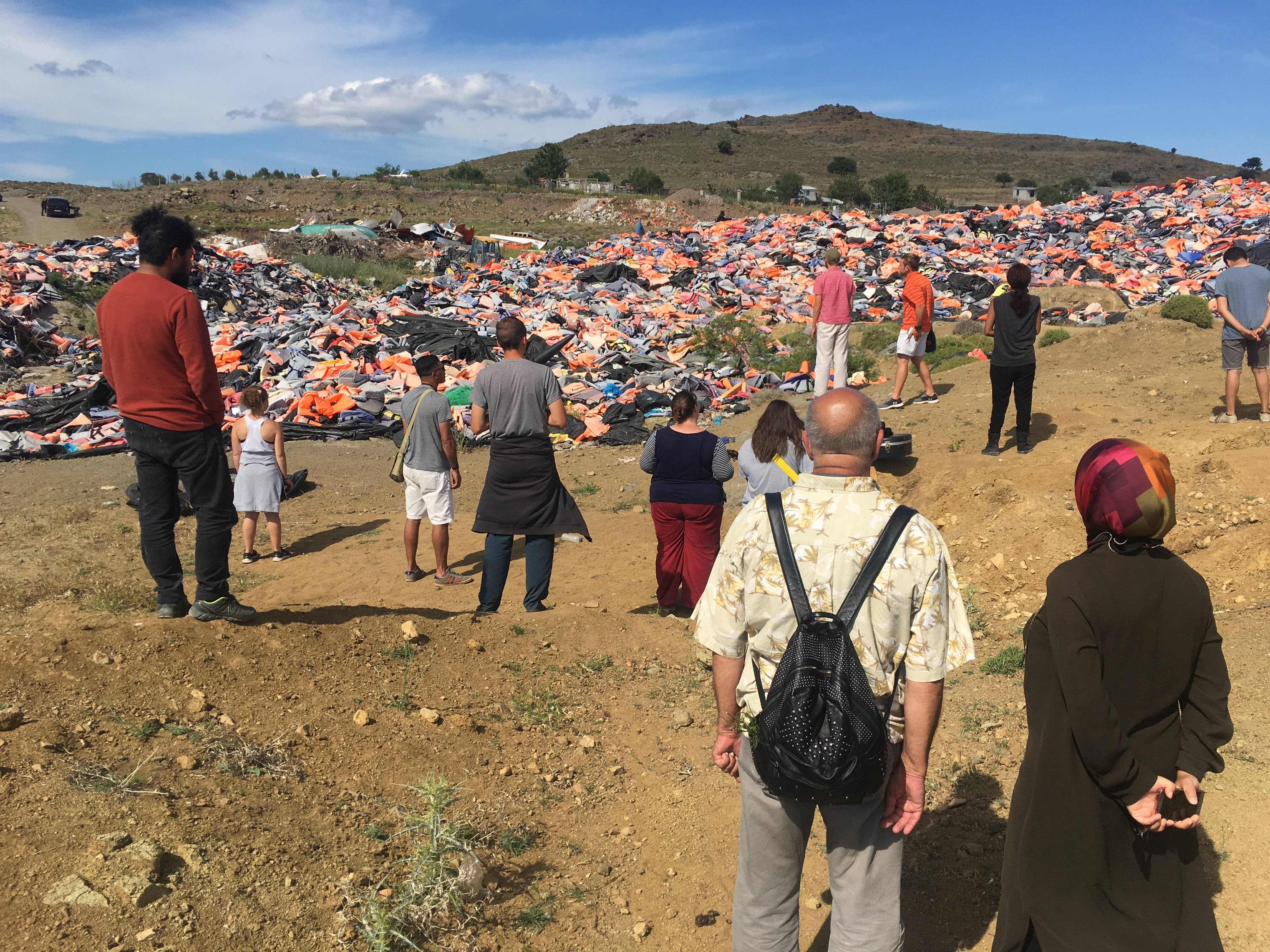 Approach
Approach
The MODRN team offers one solution: engineer creative computer simulations of religious and social dynamics in Norway and other countries that will not only allow us to understand the factors that gradually lead to conflict, but also test out suggestions to circumvent it before it begins.
The MODRN project enables this virtual social experimentation by integrating validated theories from the scientific study of religion and secularization with complex ‘causal architectures’ of agents and social systems. The simulations are then calibrated on massive, pre-existing datasets, which gives us insights into the relations between theories and reality on both the macro- and micro- level. MODRN’s policy modeling thus offers empirical grounds for evaluating both hypotheses about the causes of religious conflict and policy proposals for the future.
MODRN is currently constructing several models to help us understand the relationships between the cognitive, moral, social, and religious dynamics shaping contemporary societies. These models will enable us to test an indefinite number of hypotheses as well as their practical implications. For example, an agent-based model called the ‘Non-Religiosity Model’ (NORM) simulates shifts in religious and secular beliefs as agents interact with one another at different levels of education and existential security.
To produce this sort of model, the MODRN team brings together experts from the fields of computer modeling, religious and secular diversification, and Norwegian public-policy to guide the simulations and interpret results. CMAC is partnering with the University of Agder and the Virginia Modeling, Analysis and Simulation Center (VMASC) to foster these cutting-edge, informed and widely-applicable insights.
Impact
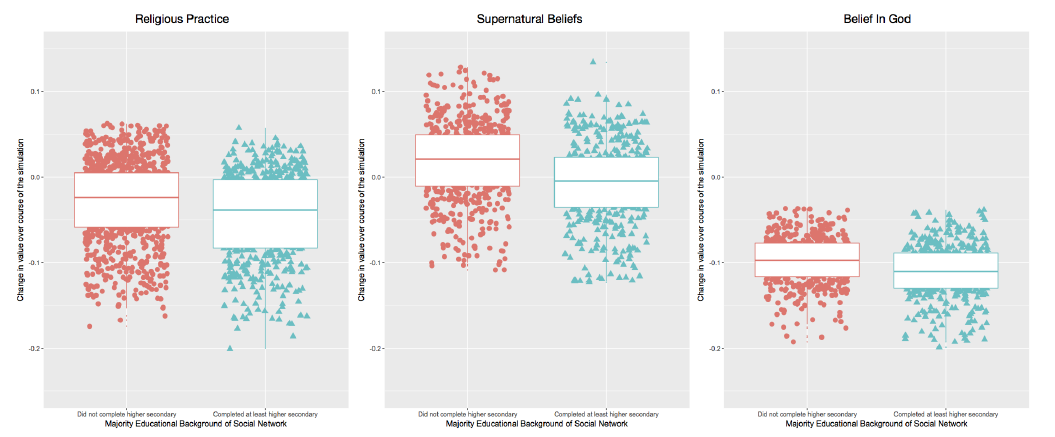
This project is both strengthening the collaboration between international networks of researchers and also developing a simulation platform that will be freely available to scholars and policy-makers, so they can test their ideas about the dynamics of conflict and change. The MODRN models will provide a clear and concrete platform into understanding complex societal relations and ultimately enable us to have a more informed public debate.
MODRN continues to advance the science of simulation and modeling as well as the scientific study of religion, showcasing the explanatory power of combining these fields.
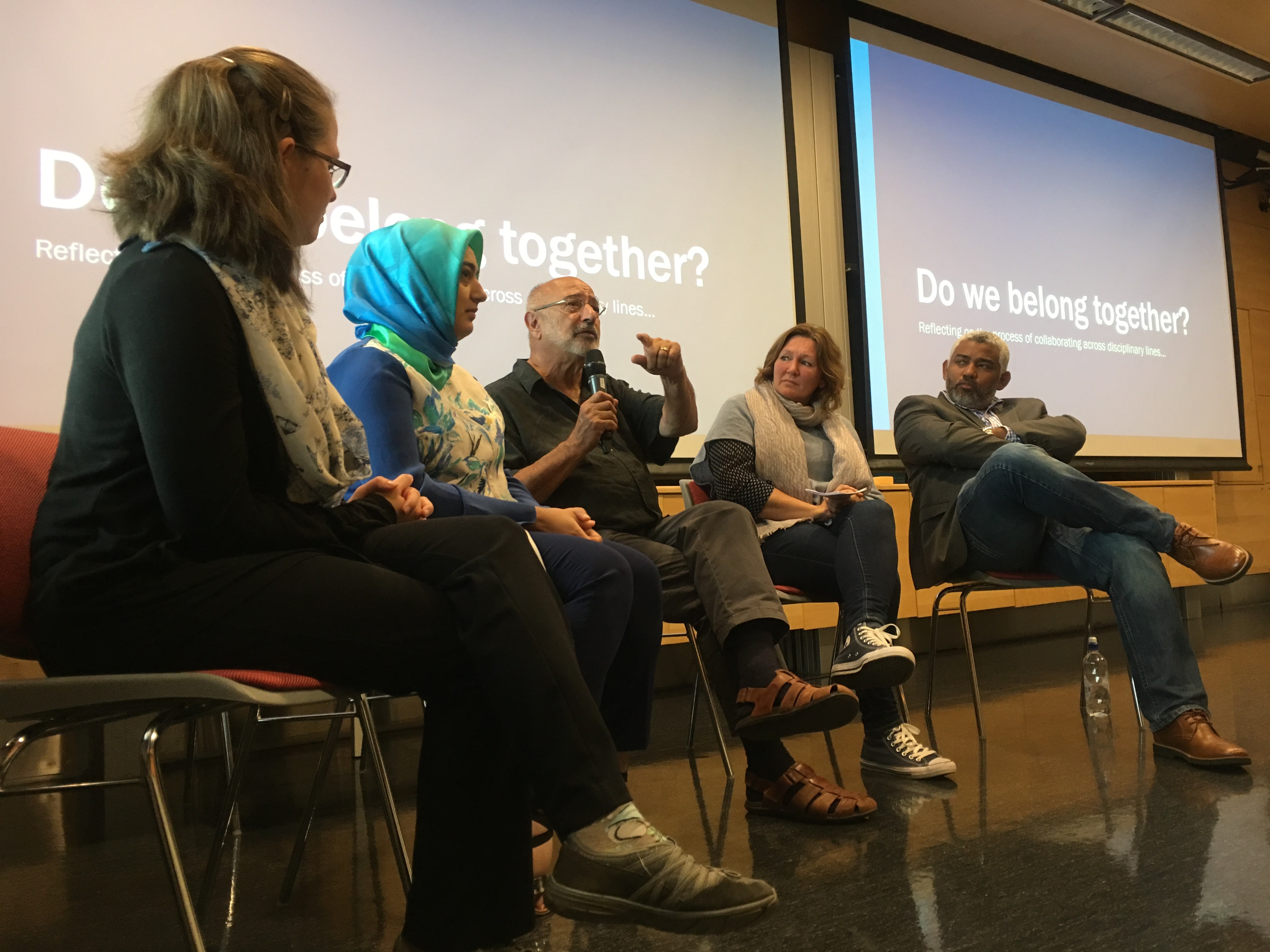
In the first two years, MODRN researchers have created, calibrated and continued to develop several models. They have met for three productive colloquia, including a workshop in Lesbos, Greece, that allowed team members to delve into the migration of peoples from their original displacement through long-term processes of acculturations.
The MODRN project is well on its way to providing new tools and devising new strategies for facing the challenges presented by pluralistic, globalizing societies and better informing the policies that guide them.
Recent Updates
Publications
Gore, Lemos, and Shults, “Forecasting Changes in Religiosity and Existential Security with an Agent-based Model,” Journal of the Artificial Social Simulation Society, 2018.
Lane, Justin E. and F. LeRon Shults, “Death threats and religion: A computer simulation,” chapter in a book on Introducing Research on Religion, edited Slone and Xygalatas, 2018.
Lemos, Carlos, Agent-Based Modeling of Social Conflict. Berlin: Springer, 2017.
Poudel, Amrit and F. LeRon Shults, “Religious Students and Computer Simulation,” Proceedings of the 2018 Principles of Mathematics Education Conference.
Shults, Gore, Lemos, and Wildman, “Why do the godless prosper? Modeling the cognitive and coalitional mechanisms that promote atheism.” Psychology of Religion and Spirituality, 2018.
Shults, “Can we predict and prevent religious radicalisation?” in Gwyneth Øverland, ed., Processes of Violent Extremism in the 21st century: International and Interdisciplinary Perspectives. Cambridge Scholars Press, in press.
Shults, F. LeRon and Wesley J. Wildman, “Ethics, computer simulation, and the future of humanity.” Chapter in Diallo et al., eds, Human Simulation, Springer, in production.
Shults, “Simulating Supernatural Seeking,” commentary article in response to “Seeking the Supernatural” target article, Religion, Brain & Behavior, in press.
Shults, Wildman, Lane, Lynch & Diallo, “Multiple Axialities: A computational model of the Axial Age.” To appear in special issue of Journal of Cognition and Culture. 2018.
Shults, F. LeRon, Wesley J. Wildman and Virginia Dignum, “Ethics in Computer Modeling and Simulation,” panel paper, Proceedings of the 2018 WinterSim Conference.
Shults, F. LeRon and Ross Gore, “Modeling Radicalization and Violent Extremism,” Proceedings of the 2018 Social Simulation Conference.
Shults, F. LeRon, Wesley J. Wildman, Saikou Diallo, Ivan Puga-Gonzalez and David Voas, “The Virtual Society Analytics Platform,” Proceedings of the 2018 Social Simulation Conference.
Shults, F. LeRon. Practicing Safe Sects: Religious Reproduction in Scientific and Philosophical Perspective. Leiden: Brill, 2018.
Tolk, Wildman, Diallo, and Shults, “Human Simulation as Lingua Franca for relating the Humanities and Social Sciences,” to appear in a special issue of the Journal of Cognition and Culture, in production for 2018.
Wildman, Shults, and Fishwick, “Teaching at the intersection of simulation and the humanities,” with Wesley J. Wildman and Paul Fishwick, in Proceedings of the 2017 Winter Simulation Conference. 3-6 December, Las Vegas, Nevada.



